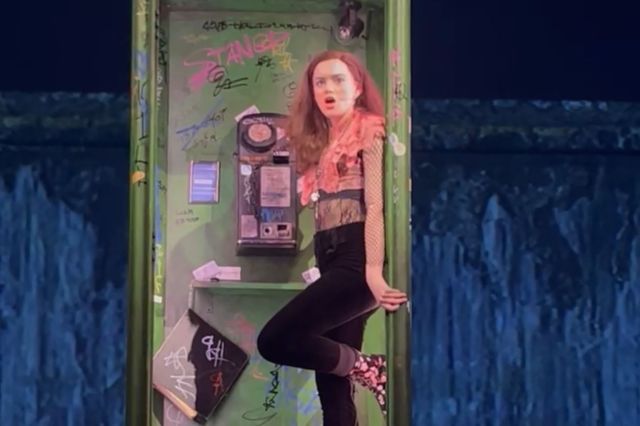Matt Trueman: Theatre must widen its reach
‘If theatre wants to diversify its audience, it has two options: invite people in or go out to them’

© Farrows Creative / National Theatre Wales
Theatre has faced the same reprimand. It finds itself facing a charge of insularity – criminal for an artform that prides itself on a) encapsulating the state of the nation and b) using the stage as a public space. However, the Warwick Commission's finding – that the wealthiest, best educated and least ethnically diverse 8% of the population account of 28% of audiences – is a stark illustration of the reality.
Some will, of course, insist that theatre needs to cling onto its core audience – an audience that has stuck with it through thick and thin, from Shaw to Whishaw. Others will say that it's time to do more, to branch out. That we all pay for the arts and we should all benefit. Great art for everyone, as the Arts Council put it. (There's a paradox in that phrase and a piece by Jan Dalley in the Financial Times this weekend illustrates it beautifully, picking apart a mock mission statement: 'Elitism for All.')
Before we start with the self-flagellation, just think back a moment. Less than two years ago, Ticketmaster's State of Play survey found that 63% of the population had been to the theatre in the previous year. A third of attendees came from households earning between £20,000 and £39,000. The Warwick Commission can be spun in reverse: 72% of theatre attendances come from outside that top 8%.
'If you want to reach people who don't go to the theatre, don't go to the theatre'
David Eldridge revived his blog last week to pick up on the issue of insularity. "New theatre is becoming too inward-looking, focused disproportionately on formal experiment and innovation." It's a hearty call for accessible theatre – theatre that talks to a wide audience, regardless of their theatre literacy and knowledge. "Post-dramatic theatre or an auteur's flourish won't attract the 91%," he writes. "People want to go to the theatre when they think they're going to have 'a good night out.'"
He's right, of course. For most people, theatre isn't a form of self-medication or education. It's entertainment first and foremost, if not pure and simple. (It can, of course, be all of that at once.)
But, he's also wrong. Accessibility is more than a matter of plain comprehensibility. If Eldridge writes a play with the 91% in mind and puts it on at the Royal Court, it won't suddenly reach a new audience by magic. The theatre's members will still come. The theatre community will still come. David's fans will still come. You still have to know about a show to go along and understand it.
If theatre wants to diversify its audience, it has two options: invite people in or go out to them.
An invite can take many forms. It could be David's new 91% play, backed up with a targeted advertising campaign, an attractive pricing policy and, perhaps, a scheme for ensuring regulars don't bulk buy the show. It could be developing a different, deeper, longer-lasting relationship. A fortnight ago, I watched a group of 20 women, all of them designated carers, perform a dance-theatre response to Happy Days as part of the Young Vic's Two Boroughs project. Here was theatre that made itself matter.
Going out is equally important – and I don't just mean touring. If you want to reach people who don't go to the theatre, don't go to the theatre. It's why the 'Without Walls' model, pioneered by the National Theatre of Scotland and picked up by National Theatre Wales is such a necessity. Last Monday, I spent the evening watching Brecht in Merthyr Tydfil's Labour Club. If the Valleys won't come to Mother Courage, bring Mother Courage to the Valleys – and more than that, re-interpret it especially.
In six years, National Theatre Wales has been into barracks and school halls, sheep farms and ancient woodlands. It has spanned the country, from Anglesey in the North West to Monmouthshire in the South East. Many of its shows do more that just get new audiences in. They're social interventions that should leave a mark. The Beach at Prestatyn took an interactive show to a town dominated by pensioners. The Passion of Port Talbot turned a declining, industrial town into the setting for an event with worldwide significance.
The fact is this: that wealthy, white, well-educated 8% have the resources and the desire to get out to see these shows. They will come regardless. They will travel. For others, if it's out of reach, they just won't come. Why, then, don't we put it on their doorstep? Take the theatre to them. The 8% will follow.












